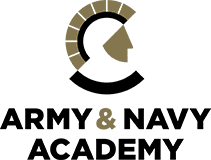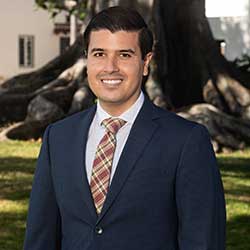Phillip Zamora
Teacher, Social Science Department
760.547.5173
pzamora@armyandnavyacademy.org
Phillip Zamora, born and raised in San Diego, California and now resides in Carlsbad. After he graduated from Ranch Bernardo High School, he pursues a BA in History from the University of California Santa Barbara, and finally a masters degree coupled with a teaching credential at the University of San Diego.
He is one of the newer members of the ANA family and teaches 12th graders in U.S. Government, AP Government and Politics, Economics, and AP microeconomics. After school, Mr. Zamora assists in the protection of Carlsbad environment with his Green Club. In his free time Mr. Zamora enjoys staying active through outdoor activities and competitive sports. Over the past couple years Mr. Zamora grew a deep appreciation for project-based-learning and developing civil discourse.
At ANA he strongly believe in the mission of social science teachers, which for him, includes serving as a catalyst to better the futures for all citizens. As social science teachers attempt to develop historical thinking skills, we should also not underestimate the concept of understanding and valuing perspectives especially in our politics. Here there is a real issue of an empathy deficit in our society, and in other words, there is almost a lost art of civil discourse. Most notably we can see this in our family dinners when we discuss politics or on TV when we see an ideological food fight between tow opposing viewpoints that drowns out logic and reason, and rather than being an informative segment, it becomes a battle that people feel they need to win. In his classroom there is real potential for our learners to reject hostility by utilizing the past to better themselves in order to improve our democratic society. In order to develop this quality of appreciating perspective, he often push students to emotionally transport themselves to the past, and encourage them to source different catalysts of worldviews, and as a result they, in a sense, become more aware of the influences on their own opinions. We often teach social science to make students aware of the past and the important events that shape our world today, and yet we miss out on this opportunity to have students face difficult questions and provide them with an experience that allows them to practice tapping into other minds to better understand a problem. In doing so, his students practice and model civility and ultimately prepare themselves for the necessary discourse that is needed for a healthy democracy.


